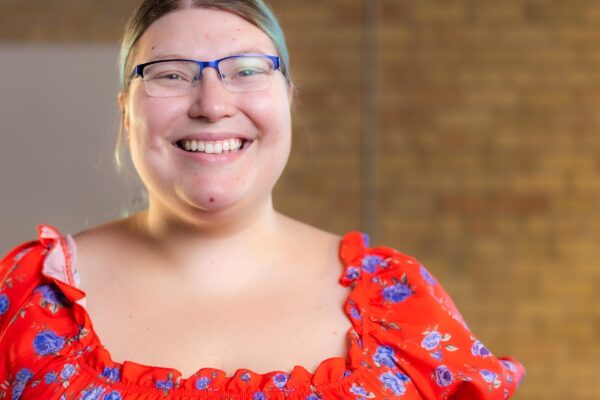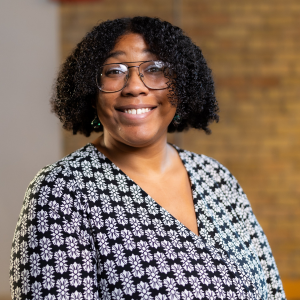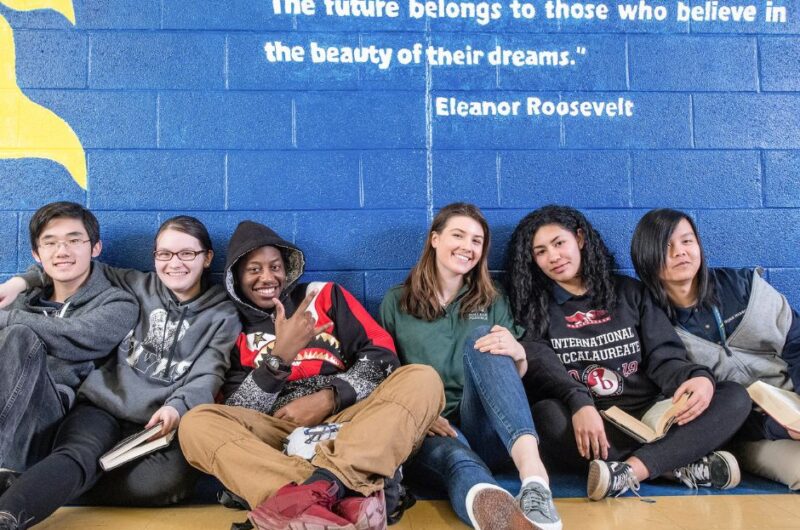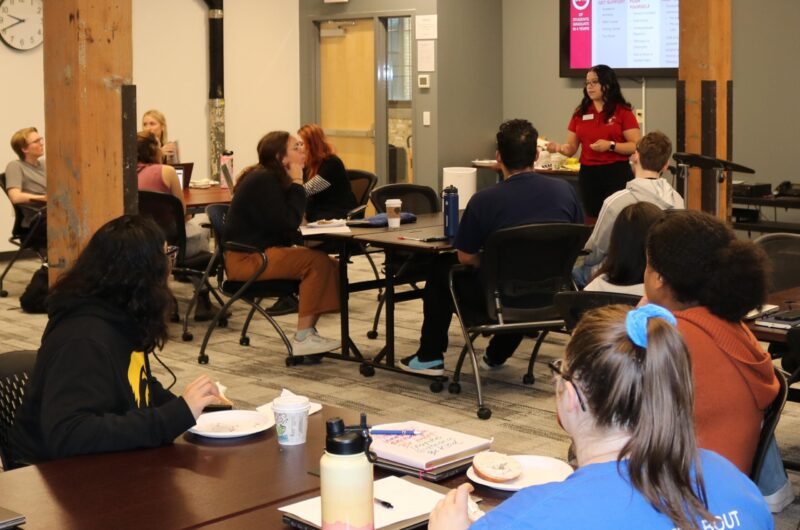Jayne joined College Possible Minnesota as an AmeriCorps coach in August 2024. Many coaches join College Possible shortly after graduating from college; Jayne came to coach after some additional experiences. She has a bachelor’s degree in social studies education from Taylor University in Indiana, a master’s degree from the University of Nebraska Lincoln and recently earned a PhD in History and American Indian and Indigenous Studies from University of Minnesota Twin Cities.
How did you get involved with College Possible? What motivated you?
Last fall, I attended the University of Minnesota Twin Cities Non-Profit College Fair and met representatives from College Possible. I was looking for a position that would allow me to give back to my community and work with students. College Possible has it all. I can work with students from across Minnesota and mentor them as they pursue higher education.
I believe deeply in the work of College Possible and can see the impact of not having this type of support. I am a second-generation college graduate, but I am from a long line of women who have dreamed of higher education. For my grandmother and great-grandmother, poverty and gender bias prevented them from achieving their dreams. My great-grandmother Ester wanted to be a nurse, but, as a German American woman in 1910, only received an elementary education. My grandmother Viola was the first person in her family to graduate from high school, but college was still out of reach. Instead, she got her secretarial certificate and became an advanced North Dakota Game and Fish Department secretary. My mother Val not only finished high school but went on to earn her master’s degree. My mother and grandmother still talk about how hard it was figuring out how to apply for college, pay for school, and navigate that process. When we talked about my work with College Possible, they were overjoyed that there is a program that helps first-generation students from low-income backgrounds navigate the college process. This is the type of resource that would have helped them both so much. College Possible ensures people like Ester, Viola, and Valerie can achieve their dreams despite the social and societal barriers. I am so happy to be an AmeriCorps coach helping make it possible.
Can you tell us about a memorable experience with a student? What were you helping them with? What did you learn from your interaction with that student?
At the beginning of the school year, one of the students I serve emailed me and said they were nervous and uncertain about their path forward. They are worried about applying for college and are struggling to understand the steps they need to take. We scheduled a meeting to talk about these concerns and college plans.
When we got to the meeting, I was ready for it to function like our regular one-on-one meetings. However, a few minutes into the meeting, I realized this was not what was needed. This student needed to be heard and cared about in the meeting. They were struggling, feeling inadequate, and feeling like they would fail in college.
Once I identified the worry, I used reflective listening strategies and diverse questioning to understand where the student was coming from and their concerns. I also started using their responses to explore their interests and priorities while affirming them as a person. Once we were in an excellent spot to talk about actual steps, I encouraged the student to log onto our student database, and we walked through the tools together. I showed them the junior year checklist and discussed ways to work together to take those first steps.
Then, once I noticed the idea of listing colleges was a point of anxiety, I pivoted to talking about careers and what gives them “energy” or is a passion. This student shared how they have been exploring different careers by taking courses and how they like social work and criminal justice work. Mostly, this joy stemmed from working with people in need. I showed them how to search for social work jobs, and they were surprised because there were so many different paths. I suggested the student read about these jobs and see what feels like a good fit, then read through the colleges offering these degrees and maybe add some to their college list. Instead of starting with ‘the college,’ start with the job. That also addressed some of their concerns and family members’ concerns about finding and getting a job after college.
By the end of the conversation, the student was visibly calmer and more engaged with the college search process. Next time I meet with a student, I will start by listening more and talking less. By supporting the student with empathy and care, I was more successful than trying to put the student into an agenda or form. This was an important lesson in being student-focused rather than idea-focused.
What would be lost if College Possible didn’t exist? Why is College Possible important?
Throughout childhood, we are told, “you can be anything you want to be,” but the adult reality is different. The amount of knowledge and opaque red tape that characterizes college applications, financial aid, and college completion exclude many people from their dreams.
College Possible makes college accessible for students and breaks down these barriers. Coaches work with students to demystify the college process, advocate for the students, help them navigate the college process, and provide support for students once they are in college. Whether a student is interested in a professional certificate, a 2-year degree, a 4-year degree, or more, the dedicated coaches at College Possible are committed to helping every student pursue their dream career regardless of their background.
Without College Possible, many students would be excluded from higher education. The red tape would entangle them and prevent them from accessing the future they envisioned. College access only gets harder with uncertainty over federal support, drastically different systems between states, and the lasting impacts of the COVID-19 pandemic. Without mentors like the College Possible coaches, many students would be fast-tracked into jobs that do not fit their skills and passions. This multi-generational impact prevents them from building generational wealth and continuing the knowledge gap, which may prevent their children from pursuing higher education. I fundamentally believe that a person’s background, geographic location, or familial circumstances should not restrict their access to education and the future they want to create. This is why I believe College Possible is not only important but essential.
What are your goals or dreams for the future?
My goal for the future is to continue working with students, breaking down barriers to education, and fostering the skills that will help them succeed in their goals. I want to work as a professor teaching history and ethnic studies to early college students and help them develop a love for learning and the critical thinking and study skills that will help them succeed both in college and their broader lives. If I do not teach, I want to work in public history, curriculum development, or student advocacy. In each role, I want to build the same love of learning, critical thinking, and barrier-breaking empowerment in the broader community. No matter what career I pursue, I will continue doing community work and advocacy for educational access and community education, allowing me to continue the work I do here at College Possible no matter where the future leads.
Do you want to help inspire students like Jayne does? Learn more about serving with College Possible. You could be a critical support system and coach to a student throughout their college journey.



